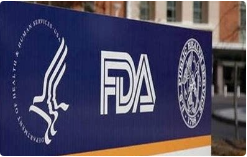



The US Food and Drug Administration has approved Qiagen's Therascreen PIK3CA RGQ PCR Kit as a companion diagnostic for identifying which advanced breast cancer patients have PIK3CA mutations and are likely to respond to Novartis' alpelisib (Piqray).
The test is designed to analyze PIK3CA mutations in tissue and blood samples. Patients who are mutation negative by liquid biopsy analysis should undergo tumor biopsy for tissue analysis.
Simultaneously, the agency approved Novartis' alpelisib, the first PI3K inhibitor for breast cancer, in combination with the endocrine therapy fulvestrant as a treatment for hormone receptor-positive, HER2-negative, PIK3CA-mutated breast cancer, after progressing on an endocrine-based regimen.
In approving the drug and companion diagnostic, the agency reviewed data from the 572-patient SOLAR-1 trial, which randomized women with advanced and metastatic breast cancer to receiving alpelisib/fulvestrant or just fulvestrant. Patients receiving the alpelisib-containing regiment experienced median progression-free survival of 11 months compared to 5.7 months in the fulvestrant arm.
Common side effects seen in the trial included high blood sugar levels, increase in creatinine, diarrhea, longer time to from blood clots, and hair loss. Patients have also reported experiencing severe hyperglycemia. The FDA cautioned healthcare providers to monitor patients receiving the drug for severe hypersensitivity reactions and advised against prescribing the drug to those with a history of serious skin reactions.
Richard Pazdur, director of the FDA's Oncology Center of Excellence, said in a statement announcing the approval of the drug and test that the agency applied some newer regulatory tools to streamline review for these products, such as the Real-Time Oncology Review Program. That program allows the FDA to begin analyzing efficacy and safety data on the drug before the sponsor officially files for approval and facilitates earlier discussions between the drugmaker and the agency.